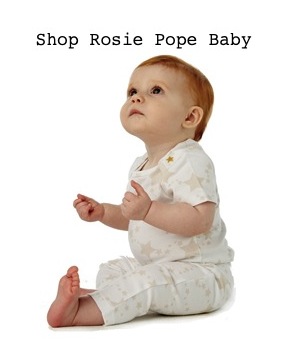Disposable Diaper Safety: Are Cancer Risks and Skin Irritants a Real Threat?
Let’s talk about what’s in your baby’s diaper. No, we’re not decoding the many variations of baby poo (or just how stinky they are!) we’re talking the materials and chemicals that companies put into their disposable diapers to help them be more absorbent, or simply more attractive.
There’s a lot of controversy out there about how the super absorbent materials and chemicals involved in bleaching diapers might affect your little one, and a lot of the things you might hear or read when you start researching the topic can be scary. I’ve heard from many moms who are concerned about the components of the diapers they use, and thought I’d do a deep dive into what’s actually in there, and what risks, if any, we need to be aware of.
Super absorbent diapers are awesome at keeping baby dry, especially through the night, but how do they do it? What’s in there that helps hold all that liquid inside? Most disposable diapers contain something called a superabsorbent polymer, comprised of acrylic acid, sodium hydroxide, and sodium polyacrylate—also sometimes called a super slurper (no joke!). It starts out as a sort of crystal substance, and then swells and becomes more of a gel when it comes in online casino contact with liquid. The polymers in diapers can typically absorb up to between 30 and 50 times their own weight in fluids, which is why they work so well to keep wetness away from your babe’s little tush. But are they safe? Some websites claim that sodium polyacrylate can cause skin irritation—which is obviously something we want to prevent if we can—but when you go to the chemical’s official material safety data sheet, which details all risks and cautions involved with its use, you can see that the only skin risk involved is during the manufacturing process when sodium polyacrylate dust might come in contact with skin. So, it turns out, that’s actually not a serious risk to your little one.
 A lot of parents are also concerned about the chlorine used to bleach many mass-market disposable diapers. Chlorine can leave behind traces of dioxins, which are carcinogens—and no parent wants to willingly introduce their child to a substance that they could potentially increase their chance of cancer later in life. It would be wonderful if we could avoid contact with dioxins altogether, but unfortunately that’s kind of impossible. Dioxins are environmental pollutants that we come into contact at some level on a regular basis. In fact, 90 percent of dioxins that humans come in contact with are from food, mainly meat and dairy products, and fish and shellfish. A study published in Environmental Health Perspectives showed that the amount of dioxin your babe might be exposed to through disposable diapers is up to two million times less than what he will eventually be exposed to through diet alone. Despite the fact that exposure through diapers is comparatively low, none of this is comforting, and I totally see how a lot of people may want to run out and buy cloth diapers to avoid the additional carcinogens. That said, the same study showed that the amount of dioxins in cloth diapers was identical to that found in disposables. So, in terms of dioxins, there’s not much you can do to avoid them in diapering, but you should know the amounts involved are very small and not considered a risk by the FDA.
A lot of parents are also concerned about the chlorine used to bleach many mass-market disposable diapers. Chlorine can leave behind traces of dioxins, which are carcinogens—and no parent wants to willingly introduce their child to a substance that they could potentially increase their chance of cancer later in life. It would be wonderful if we could avoid contact with dioxins altogether, but unfortunately that’s kind of impossible. Dioxins are environmental pollutants that we come into contact at some level on a regular basis. In fact, 90 percent of dioxins that humans come in contact with are from food, mainly meat and dairy products, and fish and shellfish. A study published in Environmental Health Perspectives showed that the amount of dioxin your babe might be exposed to through disposable diapers is up to two million times less than what he will eventually be exposed to through diet alone. Despite the fact that exposure through diapers is comparatively low, none of this is comforting, and I totally see how a lot of people may want to run out and buy cloth diapers to avoid the additional carcinogens. That said, the same study showed that the amount of dioxins in cloth diapers was identical to that found in disposables. So, in terms of dioxins, there’s not much you can do to avoid them in diapering, but you should know the amounts involved are very small and not considered a risk by the FDA.
We don’t live in a perfect world, and environmental toxins have a real impact on people’s health—but as far as skin irritants and carcinogens go, it turns out that disposable diapers aren’t really putting your wee one at risk.







I’m impressed, I have to admit. Seldom do I come across a
blog that’s both equally educative and entertaining, and let me tell you, you have
hit the nail on the head. The issue is something which too few men and women are speaking intelligently
about. I am very happy that I came across this during my search for something regarding
this.